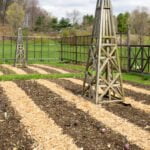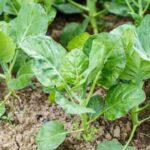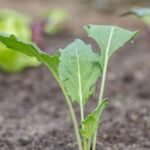Are you considering starting your own vegetable garden? If so, you might be wondering, “What tools do I need for vegetable gardening?” Whether you’re a seasoned gardener or just starting out, having the right tools can make a world of difference in the success of your garden. From trowels to watering cans, this article will cover everything you need to know about the essential tools for vegetable gardening.
There’s something incredibly satisfying about growing your own vegetables. Not only do you get to enjoy fresh and delicious produce right from your backyard, but there’s also a sense of pride in nurturing and tending to your garden. The joy of vegetable gardening goes beyond just the end result – it’s about the process of caring for plants and watching them thrive under your care.
In this article, we’ll delve into the various categories of tools needed for successful vegetable gardening. From hand tools for planting and pruning to watering equipment and pest control measures, we’ll cover it all. So whether you’re a novice gardener or looking to upgrade your current tool collection, stay tuned to learn more about what tools are essential for a bountiful vegetable garden.
Essential Hand Tools for Vegetable Gardening
When it comes to vegetable gardening, having the right hand tools can make all the difference in the success of your garden. Whether you are a beginner or a seasoned gardener, having these essential hand tools on hand will ensure that you have everything you need to tend to your vegetable garden effectively. Here are some of the must-have hand tools for vegetable gardening:
- Trowel: A trowel is a versatile tool that is perfect for digging small holes for planting seeds, transplanting seedlings, and removing weeds.
- Hand pruners: Also known as secateurs, hand pruners are essential for trimming and shaping plants, as well as harvesting vegetables.
- Weeder: A weeder with a sharp, narrow blade is invaluable for removing stubborn weeds from the garden without disturbing the surrounding plants.
- Gloves: A good pair of gardening gloves will protect your hands from thorns, rough edges, and dirt while working in the garden.
These hand tools are the foundation of any successful vegetable gardening venture. With these tools in your arsenal, you’ll be well-equipped to handle all the tasks necessary to grow healthy and thriving vegetables.
Soil Preparation
When it comes to vegetable gardening, soil preparation is crucial for the success of your crops. The right tools and techniques can make all the difference in creating a healthy and productive garden.
Tools for Soil Preparation
Some essential tools for soil preparation include a garden fork, spade, and rake. These tools are used for breaking up compacted soil, turning the soil to incorporate organic matter, and leveling the ground respectively. A garden fork is particularly useful for aerating and loosening the soil, while a spade is great for digging and turning over soil. A rake helps in removing debris, breaking up clumps, and creating a smooth surface for planting.
Techniques for Soil Preparation
Before planting, it’s important to assess the condition of your soil. Testing the pH level can help determine if any amendments are needed to balance the acidity or alkalinity of the soil. Once you have your results, you can then enrich the soil with compost or other organic matter to improve its structure and fertility.
Double-digging is another technique that involves loosening the soil to a deeper level than traditional tilling methods. This helps create better drainage and root penetration for your vegetables.
Tips for Effective Soil Preparation
To ensure effective soil preparation, it’s important to work when the ground is moist but not overly wet. Wet soil can become compacted when manipulated, leading to poor aeration. It’s also advisable to remove any existing weeds or debris from the area before preparing the soil. By taking these steps and using the right tools, you can set a solid foundation for a successful vegetable garden with nutrient-rich and well-draining soil.
Watering Tools for Vegetable Gardening
When it comes to vegetable gardening, proper watering is essential for the health and growth of your plants. Having the right watering tools can make this task much easier and more efficient. Here are some essential watering tools for vegetable gardening:
- Watering Can: A good watering can is a must-have for any gardener. It allows you to water your plants gently and accurately, avoiding unnecessary water waste.
- Hose: A garden hose with a spray attachment is great for larger gardens or when you need to reach areas that are far from your water source.
- Soaker Hose: This type of hose delivers water directly to the base of your plants, reducing water evaporation and ensuring that the roots receive an even soaking.
Each of these tools serves a different purpose in maintaining a healthy garden, and having all three in your arsenal will ensure that you’re prepared for any watering task.
Proper watering is crucial for vegetable gardening success. Overwatering can lead to root rot and other issues, while underwatering can stunt plant growth and lead to poor harvests. By utilizing the right watering tools, you can ensure that your plants receive the perfect amount of water they need to thrive throughout the growing season.
Garden Maintenance Tools
Maintaining a vegetable garden in top shape requires the use of specific tools to keep the plants healthy and thriving. One essential tool for garden maintenance is the wheelbarrow, which is used for transporting soil, mulch, plants, and other heavy items around the garden. It is a handy tool that makes it easier to move materials without straining your back.
Another important garden maintenance tool is the hoe, which is used for breaking up soil, removing weeds, and hilling soil around plants. There are different types of hoes available such as the Dutch or push hoe and the scuffle or stirrup hoe, each with its own specific function for maintaining a well-kept garden.
Lastly, a mulch fork is essential for spreading mulch around plants to help retain moisture and suppress weed growth. Mulch forks have sturdy tines that make it easier to distribute mulch evenly without damaging delicate plant stems.
| Tool | Function |
|---|---|
| Wheelbarrow | Transport heavy items around the garden |
| Hoe | Break up soil, remove weeds, and hill soil around plants |
| Mulch Fork | Spread mulch around plants to retain moisture and suppress weed growth |
Planting and Seeding Tools
When it comes to vegetable gardening, having the right tools for planting and seeding is essential to ensure a successful and bountiful harvest. One of the most important tools for this task is a dibber, which is used for making holes in the soil for planting seeds or seedlings. A dibber allows you to create uniform holes at the appropriate depth, promoting proper germination and growth of your vegetables.
Another indispensable tool for planting and seeding is a seedling tray. This convenient accessory allows you to start your seeds indoors before transplanting them into your garden. Seedling trays provide a controlled environment for young plants, helping them develop strong roots before being transferred to the outdoor garden. Additionally, using a quality seed starter mix can significantly boost the germination rate of your seeds, giving them the best possible start in life.
In addition to the dibber and seedling tray, having a reliable watering can or fine-mist sprayer is crucial for keeping newly planted seeds and seedlings properly hydrated without causing damage. Proper moisture levels are vital in ensuring that seeds germinate and young plants thrive. Using a watering can with a fine rose attachment or a handheld mister allows you to water delicately without disturbing the soil or displacing small seeds.
| Tool | Function |
|---|---|
| Dibber | Makes holes in the soil for planting seeds or seedlings |
| Seedling Tray | Allows indoor starting of seeds before transplanting |
| Watering Can/Fine-Mist Sprayer | For delicate watering of newly planted seeds and young plants |
Pest and Weed Control Tools
Hand Cultivator
A hand cultivator is a crucial tool for vegetable gardening, especially when it comes to weed control. This tool is designed with sharp tines that easily penetrate the soil and loosen weeds, making it easier to remove them from the root. Hand cultivators also help aerate the soil, allowing necessary nutrients and water to reach the plant roots effectively.
Insect Netting
Insect netting is an essential tool for protecting your vegetable garden from common pests like aphids, caterpillars, and beetles. The fine mesh of insect netting acts as a barrier that prevents these insects from reaching your plants while still allowing air, sunlight, and water to pass through. It’s an excellent alternative to chemical pesticides and provides a natural way to keep destructive bugs at bay.
Organic Pesticides
For persistent pest problems in your vegetable garden, organic pesticides can be used as a last resort. These environmentally-friendly solutions are formulated using natural ingredients such as neem oil, garlic, or pepper extracts that are safe for use around edible plants. Organic pesticides can effectively control harmful insects without harming beneficial ones or causing harm to humans or pets when used appropriately.
By utilizing hand cultivators, insect netting, and organic pesticides as part of your pest and weed control tools arsenal, you can ensure a healthy and thriving vegetable garden without relying on harmful chemicals that could affect both your health and the environment.
Additional Tools for Specialty Vegetable Gardening
In conclusion, vegetable gardening can be a rewarding and fulfilling hobby, providing not only a source of fresh and healthy produce but also the joy of nurturing and tending to a garden. To ensure success in vegetable gardening, it is important to have the right tools for various aspects of garden maintenance.
From essential hand tools like trowels and pruners to watering tools such as hoses and watering cans, each tool serves an important role in keeping the garden healthy and productive.
Furthermore, proper soil preparation with tools like garden forks and spades is crucial for creating a conducive environment for plant growth. Additionally, the use of pest control tools such as hand cultivators and insect netting can help protect the plants from potential infestations. Lastly, specialty tools like trellises and row covers are beneficial for those growing specific types of vegetables that require additional support or protection.
Overall, having the appropriate tools for vegetable gardening can contribute significantly to the overall success of your garden. With the right tools at your disposal, you can effectively manage various aspects of gardening and create an environment where your vegetables can thrive. So whether you are a beginner just getting started or a seasoned gardener looking to expand your tool collection, investing in the right equipment will undoubtedly enhance your vegetable gardening experience.
Frequently Asked Questions
What Garden Tools Do I Need for Vegetable Garden?
To start a vegetable garden, you will need some essential garden tools. A few basic tools include a trowel for planting and transplanting, a garden fork or shovel for digging and turning the soil, a watering can or hose for irrigation, and a hoe for weeding.
Additionally, a pair of gardening gloves can help protect your hands while working in the garden.
What Does Every Vegetable Gardener Need?
Every vegetable gardener needs a few key items to ensure success in their gardening endeavors. Firstly, having quality seeds or seedlings of the vegetables you want to grow is essential. Proper soil amendments and fertilizers are also necessary to provide nutrients to the plants.
A good set of gardening tools including a trowel, shovel or fork, hoe, watering can or hose, and pruners will also be needed. Finally, having protective equipment like gloves and maybe even knee pads can make the gardening experience more comfortable.
What Tools Do Professional Gardeners Use?
Professional gardeners often use more specialized or heavy-duty tools for their work compared to amateur gardeners. Some professional-grade tools that they might use include high-quality pruners and shears for trimming plants, powerful tillers or cultivators for large-scale soil preparation, and irrigation systems like drip lines for efficient watering.
They may also invest in tools like hand-held soil pH meters or moisture meters to monitor the conditions in their gardens more closely. Overall, professional gardeners typically have access to higher-end equipment that allows them to efficiently maintain larger areas of land.

If you’re looking to get into vegetable gardening, or are just looking for some tips on how to make your current garden better, then you’ve come to the right place! My name is Ethel and I have been gardening for years. In this blog, I’m going to share with you some of my best tips on how to create a successful vegetable garden.





